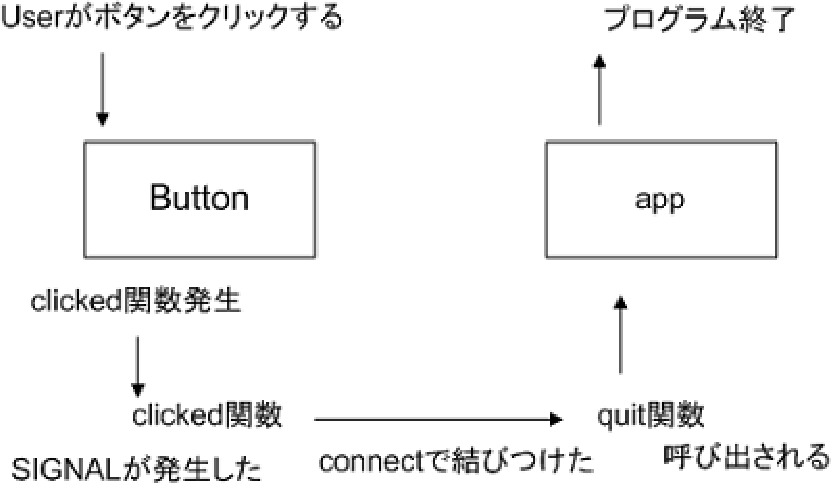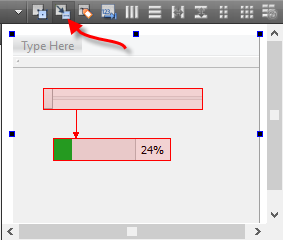
Traditional syntax: SIGNAL and SLOT QtCore.SIGNAL and QtCore.SLOT macros allow Python to interface with Qt signal and slot delivery mechanisms. This is the old way of using signals and slots. The example below uses the well known clicked signal from a QPushButton.The connect method has a non python-friendly syntax.

Signals and slots is a language construct introduced in Qt for communication between objects[1] which makes it easy to implement the observer pattern while avoiding boilerplate code. The concept is that GUI widgets can send signals containing event information which can be received by other widgets / controls using special functions known as slots. This is similar to C/C++ function pointers, but signal/slot system ensures the type-correctness of callback arguments.[citation needed]
The signal/slot system fits well with the way graphical user interfaces are designed. Similarly, the signal/slot system can be used for other non-GUI usages, for example asynchronous I/O (including sockets, pipes, serial devices, etc.) event notification or to associate timeout events with appropriate object instances and methods or functions. It is easy to use and no registration/deregistration/invocation code need to be written, because Qt's metaobject compiler (MOC) automatically generates the needed infrastructure.
Qt Signal Slot With 2 Arguments

A commonly used metaphor is a spreadsheet. A spreadsheet has cells that observe the source cell(s). When the source cell is changed, the dependent cells are updated from the event.
- @VRonin, I'm absolutely positive, I have a QPushButton, which I connected the 'clicked' signal using the macro's this was connected to the slot also using the macro's exactly as I posted, it worked.I'm using Qt 5.12.
- Support for Signals and Slots¶ One of the key features of Qt is its use of signals and slots to communicate between objects. Their use encourages the development of reusable components. A signal is emitted when something of potential interest happens. A slot is a Python callable. If a signal is connected to a slot then the slot is called when.
Alternative implementations[edit]
There are some implementations of signal/slot systems based on C++ templates, which don't require the extra metaobject compiler, as used by Qt, such as libsigc++, sigslot, vdk-signals, nano-signal-slot, neosigslot, Signals, boost.signals2, Synapse, Cpp::Events, Platinum and JBroadcaster. Common Language Infrastructure (CLI) languages such as C# also supports a similar construct although with a different terminology and syntax: events play the role of signals, and delegates are the slots. Another implementation of signals exists for ActionScript 3.0, inspired by C# events and signals/slots in Qt. Additionally, a delegate can be a local variable, much like a function pointer, while a slot in Qt must be a class member declared as such. The C based GObject system also provides similar functionality via GSignal.In D it is implemented by std.signals.
See also[edit]
Libraries[edit]
Java: sig4j - multi-threaded, type-safe, based on the FunctionalInterface annotation introduced in Java 8.
C++: vdk-signals - thread-safe, type-safe, written in C++11 with atomic variables.
References[edit]
Qt Connect Signal Slot
- ^'Signals & Slots - QtCore 5.1'. Qt Project. 2013-07-04. Retrieved 2013-07-04.